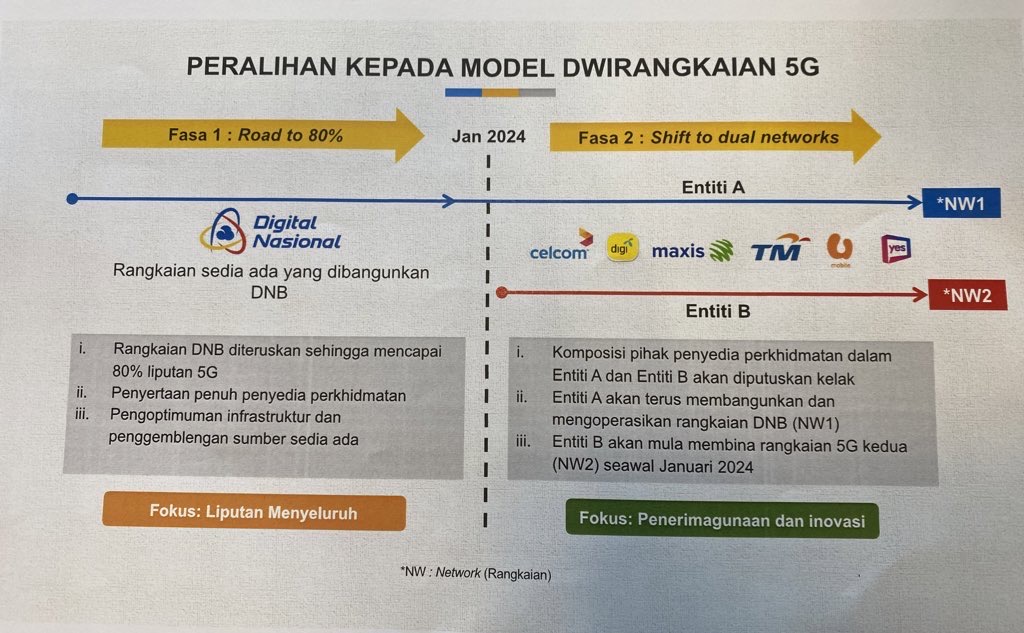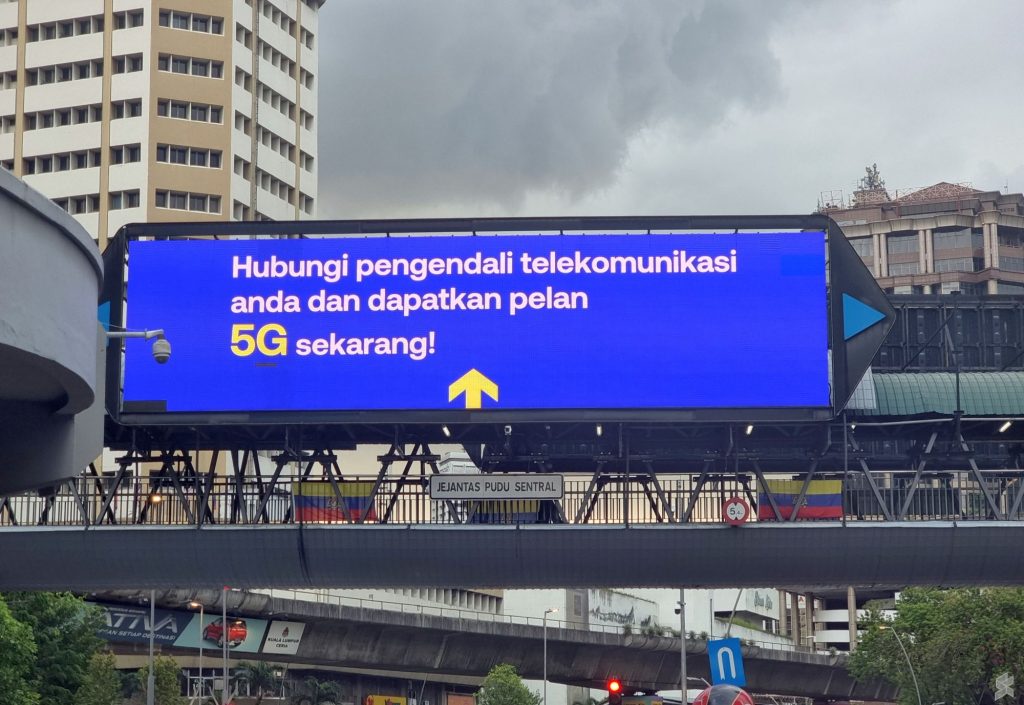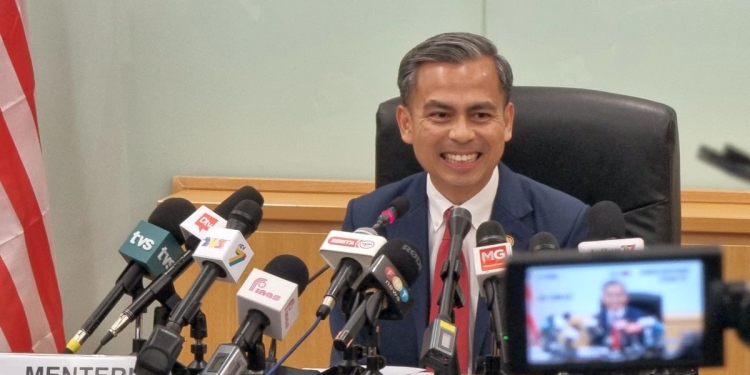Communications and Digital Minister Fahmi Fadzil has announced that the 5G Task Force has successfully achieved an agreement with regard to the 5G access agreement and equity participation for Digital Nasional Berhad (DNB). Besides getting all five telcos on board with DNB for 5G access, he said all telcos will be taking an equity stake in the 5G single wholesale network.
According to the statement, the five operators – CelcomDigi, Maxis, Telekom Malaysia, U Mobile dan YTL Communications, are in the process of finalising their shareholding with DNB. In addition, they will support DNB’s 5G development until it achieves 80% 5G population coverage by the end of 2023 before transitioning to a Dual Network approach in January 2024.
According to Fahmi, DNB’s 5G network has achieved 64.7% 5G population coverage by the end of June 2023 and is on track to achieve its 80% target by the end of this year. He also shared that Maxis customers will soon enjoy 5G as they are seeking their shareholders’ approval to sign the 5G access agreement with DNB during an EGM that’s happening next month.
So what happens with Dual Network approach?

To recap, the government announced a policy shift to transition from a 5G Single Wholesale Network to a Dual Network approach in May this year. Besides aiming to dismantle the 5G monopoly, the decision was made to avoid a single point of failure and to establish redundancy for 5G.
Shortly after that, CelcomDigi and TM announced the termination of the Share Subscription Agreement with DNB. According to CelcomDigi, the termination of the equity deal will clear the path for CelcomDigi to participate in any new process including equity participation together with the industry. Last year, four telcos – Celcom, Digi, TM and YTL Communications, signed a conditional share subscription agreement with DNB with a collective 65% equity stake in the state-owned network, while the government retains its 35% stake.
With the latest announcement, this means all telcos will take a stake as well as maintain a 10-year 5G access agreement with DNB, before a second network is allowed next year. There’s still no clarity on the formation of a second 5G network (Entity B) and what the next steps are when all telcos are already on board with DNB (Entity A).
At the moment, DNB is still a 100% government-owned network with RM500 startup capital from the Ministry of Finance. During its formation, the single wholesale network was designed to run a cost-recovery model funded by wholesale commitments from the telcos. As highlighted by Malaysian Communications and Multimedia Commission (MCMC) COO Dato Mohd Ali Hanafiah Mohd Yunus, the government will withdraw its holding in DNB, making it a fully private entity once the 80% 5G population target is achieved.
Who will build Malaysia’s second 5G network?

With a locked-in 10-year access agreement with DNB, what is the motivation or incentive to encourage a second competing network? Would telcos be able to justify additional investments to build a second network in Malaysia if they are already fully committed to DNB in both shareholding and access agreements? Or is the government looking at new players including foreign entities to build a 5G second network in Malaysia?
As it stands, DNB is still the 5G monopoly as the government has not rescinded former Communications and Multimedia Minister Saifuddin Abdullah’s ministerial order to award 700MHz and 3500MHz spectrum exclusively to DNB. At the same time, the MCMC has not yet reinstated the technology neutrality of spectrum which prevented all telcos from offering anything beyond 4G using their existing spectrum. According to the MCMC, both can be reversed quickly once Malaysia achieves 80% 5G population coverage. Does Malaysia really need to wait until 80% to enable a second network and what happens if we don’t achieve that by the end of this year?







